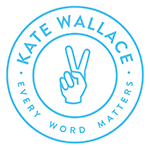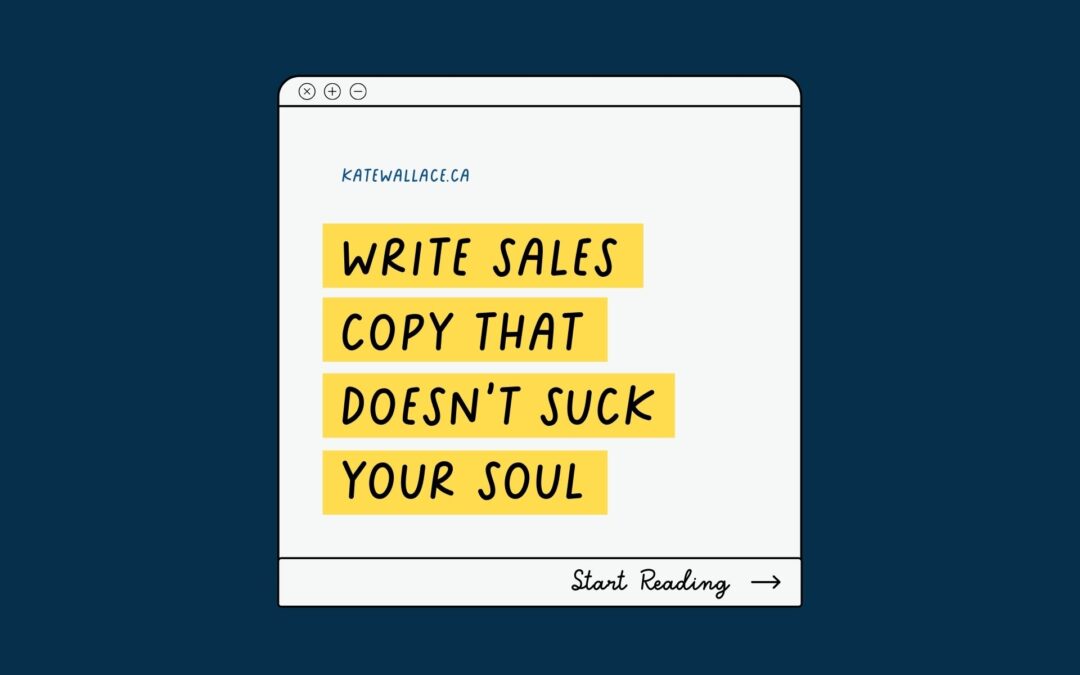Does the thought of writing sales copy make you die a little inside?
No wonder. The smarmy salesperson is a stock character of stage and screen, from Arthur Miller’s tragic sad-sack, Willie Loman, to the Machiavellian sharks of Glengarry, Glen Ross, and the benign 1980s cheese of WKRP’s Herb Tarlek.
More recently, the internet has proliferated a host of horrific sales tactics, from outright lies and scams to more subtle, emotional and algorithmic manipulations to drive leads and close sales. There are the “secrets” that promise six- or seven-figure sales and epic launches. Ticking timers to induce cart-closing countdown anxiety. Faux-friendly email sequences, bogus discounted bonuses, all with a heaping side of false scarcity.
Eww, David. Eww.
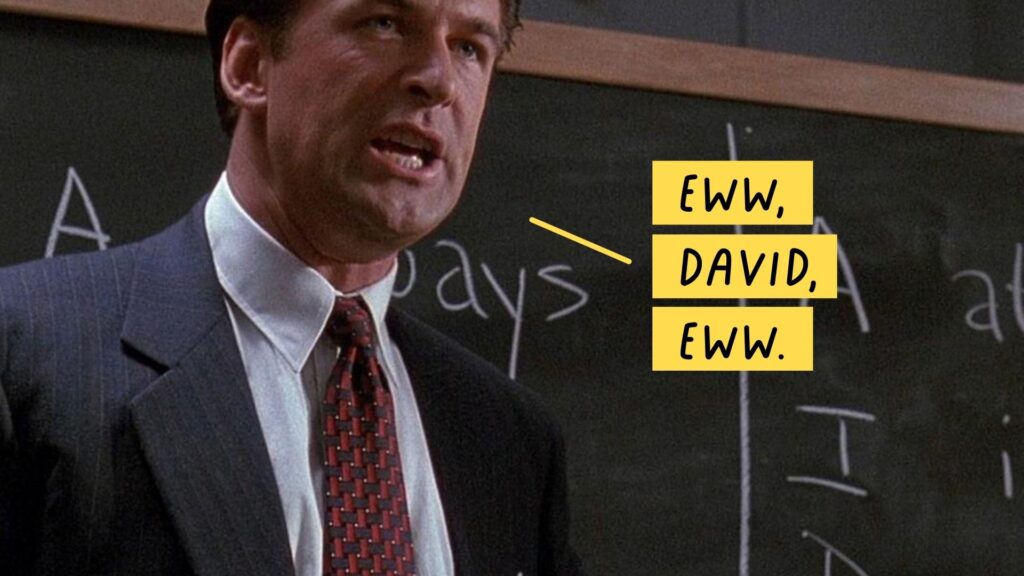
When I first moved from journalism to copywriting, I looked around my new industry and felt dismayed by a lot of what I saw. So much marketing and sales copy was cheesy and generic at best and immoral at worst.
I’ve watched the recent pushback with interest. As I’ve grappled with my ambitions to scale a one-woman company in a way that feels both strategic and principled, I’ve realized that sales copy needn’t conform to these terrible stereotypes.
It can be a good thing.
I’ve done a u-turn in my thinking to understand that sales is inextricably linked to how we think of ourselves, our offerings and our relationship to our clients.
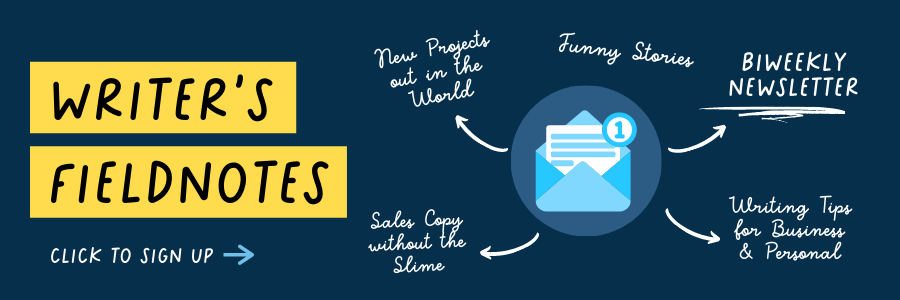
Sales as a Service.
In a recent newsletter, Mark Manson wrote about getting to know Will Smith while co-writing the megastar’s memoir (Will comes out in November, but you can order here.)
Mark recounted how Will told him, “I’m world-class at only a couple of things. And every hour I’m not doing those things, I am doing a disservice to myself and the world.”
Will went on, “There are people out there who are world-class at other things—cooking, marketing, writing, whatever—and for me to not hire them and support what they do also does a disservice to the world.”
Mark writes that this blew his mind, how Will reframed sharing your skill, craft, superpower–whatever you call it–as an ethical imperative.
Mark writes, “You have a moral responsibility to do what you do best because that is your service to the world. Similarly, you have a moral responsibility to support others in what they do best because that is their service to the world.”
Reframe what you do as a service. Sales copy is simply your bat signal to the people who will benefit from your best.
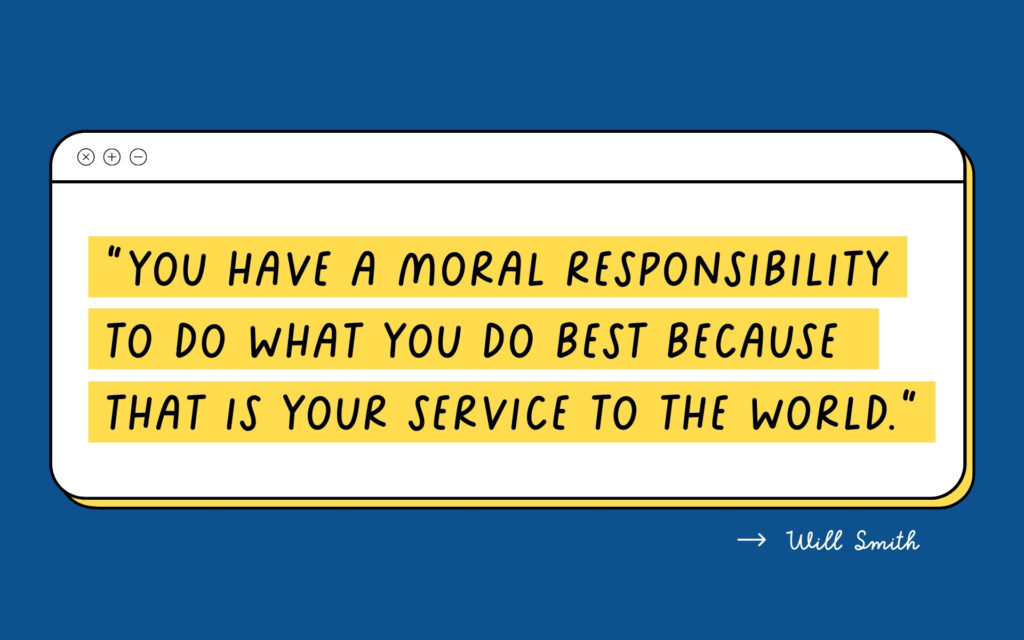
Sales copy That Does No Harm.
Conventional sales wisdom is all P.A.S.: pain, agitation, solution. It’s pretty sadistic, right? I’m gonna bite you in the ass and then sell you a bandaid. Gross.
And that inflated, pressure-tactics prose behind it that’s all about manufacturing a false feeling of scarcity, urgency and inadequacy?
Again, no thanks.
Examples of sales copy that make you feel shitty abound. But it doesn’t have to. So I’m ditching the old school approach and writing sales copy that has:
- No pressure
- No false timelines
- No manufactured urgency
- No manipulation
- No slime or sleaze
- No fake scarcity
Sales as a Relationship
Sales takes two: buyer and seller, service provider and subscriber, consultant and client.
It is inherently relational, an exchange between two parties, both with a stake in the outcome.
But too often, sales copy is transactional. Or worse: it feels like an imposition, something unwelcome being foisted upon us.
I think that’s what rankled me most when I started copywriting: how much selling felt one-way.
Again, it doesn’t have to be this way.
So I’m embracing sales copy (for myself and my clients) that creates a locus for connection. Sales can be generous. And the most enticing sales are offered (not pushed) in a welcoming and consensual way.
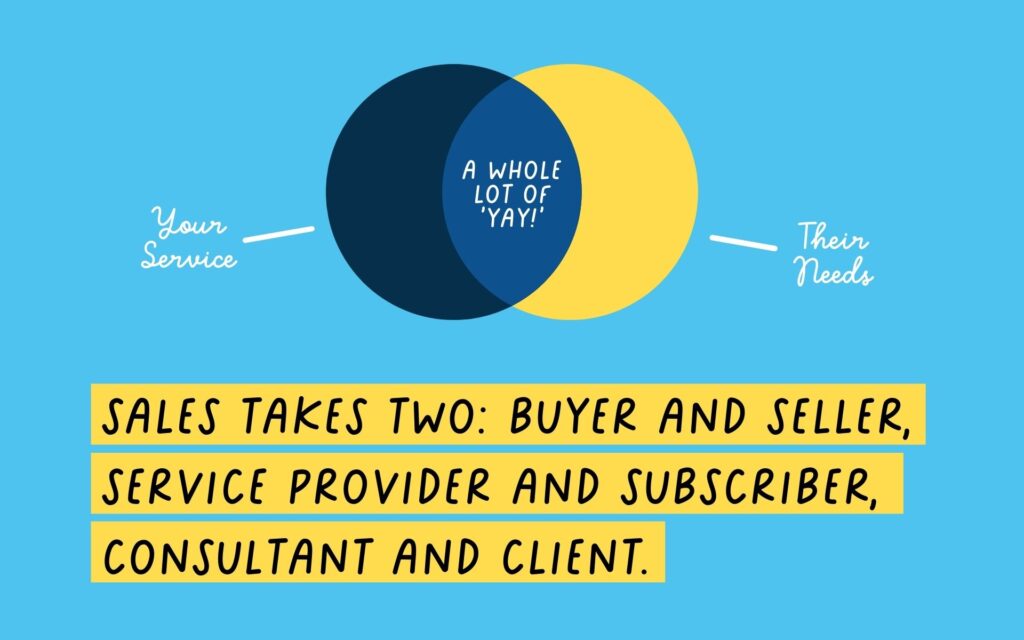
Sales as Self-Expression.
Many of my clients are small businesses where the founder is close to every part of the company, including sales. For them, the brand is often a direct extension of their values and voice.
This makes copywriting challenging because it’s so damn personal. You’re not just representing a brand; you have to be brave enough to show yourself. It makes you vulnerable. And that’s scary.
This is some deep change stuff about accepting that what we do has value. For those of us who have been told to play it small, to deflect and demur, sales can feel downright narcissistic. For me, the shift happened after a few years in a business, when I could see how my copy was helping my clients. That helped me embrace my work as a service to others, not something I was trying to force upon them or trick them into liking or buying.
This gave me the confidence to write sales copy that embodies what I value, such as creativity, fun, intelligence, and humour.
Today, I see sales as a mirror and a lens, channeling and reflecting the things I’m good at and care about. How about you? Where are you on the sales spectrum? Love it? Hate it? Tell me all about it in the comments.
